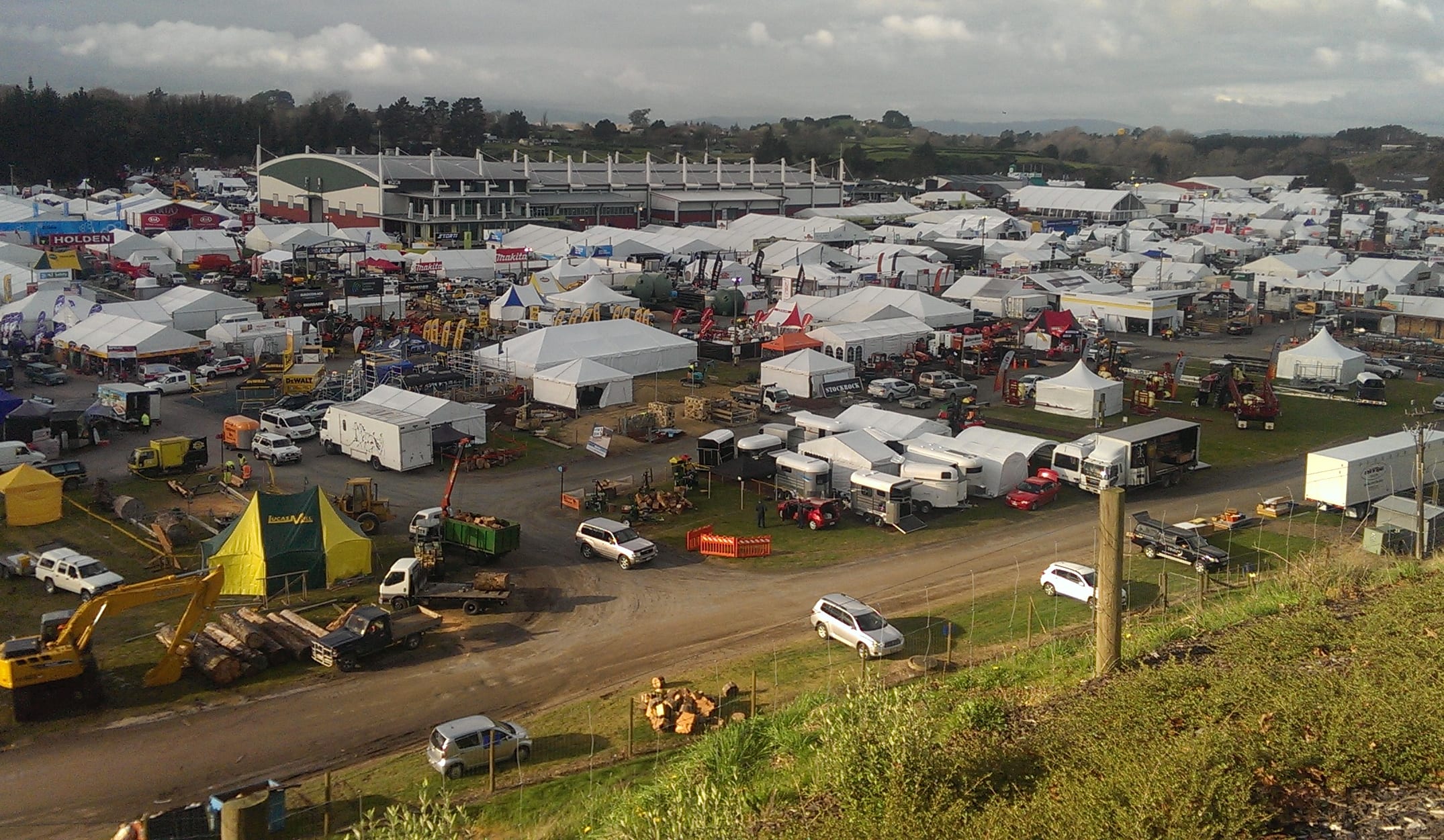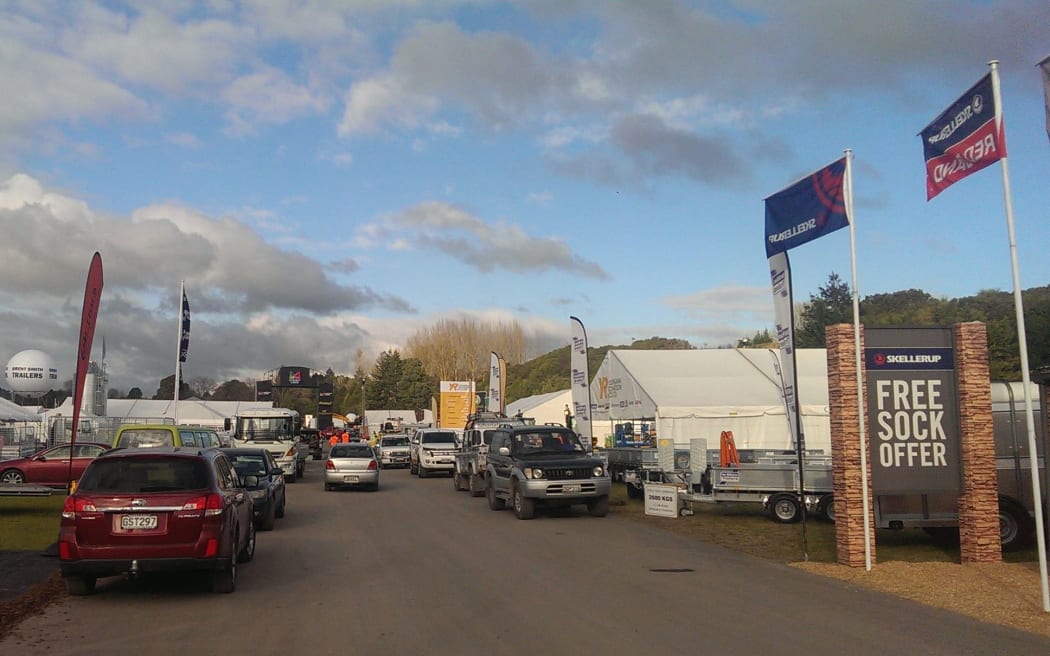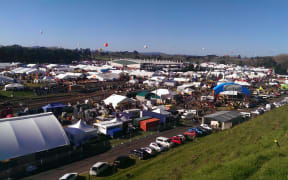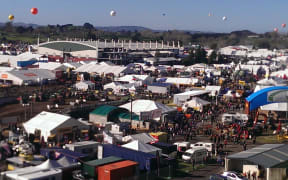At least 100,000 people are expected to head for the 47th national Agricultural Fieldays at Hamilton's Mystery Creek during the next four days.

The view from the hill overlooking the set-up at the 2015 Fieldays. Photo: RNZ / Andrew McRae
They'll be checking out what is on offer in the way of new products, machinery, ideas and innovations in agriculture.
People were queuing when the gates opened at 8am today for the Fieldays, the theme of which is Growing Capability in Agribusiness.
That builds on the need to keep developing New Zealand's position as a global leader in agriculture and recognises the challenges in maintaining and growing a skilled workforce.
Waikato Univeristy is one of the premier exhibitors tapping into that theme, with a working prototype of a tree seedling grading machine at its stand.
Associate Professor Mike Duke said forestry seedling companies had to select stock from millions of seedlings every year.
"And they actually look at the root structure to decide whether they're good or bad. What we have here is a machine vision system that will take pictures of the root strucutre and a computer algorithm will make the same decision as a human brain to grade them, so at the end of the conveyor they go into the good box or the bad box," he said.

National Fieldays 2015. Photo: RNZ / Andrew McRae
Another exhibitor, Primary ITO, works with education providers and is currently promoting a Diploma of Agribusiness Management.
Chief executive Mark Jefferies said the aim at Fieldays was to encourage farmers and their staff to think about how their careers were progressing and how they might help themselves.
They had a simple but clever interactive display on their stand.
"We've got a stand here that identifies a number of themes for individuals to register their particular interests. So we have themes in problem solving, technical skills, reading, writing and arithmetic, right through to human resource and financial management," he said.
"And what we'll be doing through our social network is reporting on the interests coming through from the people we are talking to and that will be good for starting conversations with industry after the Fieldays, to see whether we've got programmes that are aligning to the needs of our audiences here this week."
One display attracting attention at the Fieldays was what the manuafcturers believed was a first for New Zealand - a system which turned dairy effluent into clean water using a recycling process.
Craig Hawes from Forsi Innovation said it was designed to help dairy farmers be more sustainable.
"We take dairy effluent direct from the cowshed yard, process it through our 40-foot container right through to New Zealand drinking water standards," he said.
"It's a standard that allows a farmer to do whatever he wants with the effluent. With that clean water he can irrigate onto pasture or reuse it for washing down the feed-pad or the cow shed. It's clean enough for the cows to drink.
"Especially in times of drought, it's good to be able to reuse the water that you do have, be more sustainable."
The recyling system costs about $295,000.
Fieldays wraps up on Saturday.




